All About the Chinese Lantern Festival (2024)
February 01, 2023
The Lantern Festival is a traditional Chinese holiday that dates back to the Han Dynasty (206 BCE - 220 CE). Over 2000 years later, this holiday is still alive and celebrated in China and many other countries throughout Asia.
In this article, we will take a look at everything you should know about the Chinese Lantern Festival, including the significance of lanterns and the Lantern Festival in China, some common Lantern Festival traditions, the legend behind the holiday, and more.
What is the Chinese Lantern Festival?
When is the Chinese Lantern Festival?
What do lanterns symbolize in China?
How do Chinese people celebrate the Lantern Festival?
What is the difference between 元宵 yuánxiāo and 汤圆 tángyuán?
Why do we eat 元宵 yuánxiāo or 汤圆 tángyuán on the Lantern Festival?
What is the significance of the Lantern Festival in China?
The Legend of the Lantern Festival
How do I say happy Lantern Festival in Chinese?
What is the Chinese Lantern Festival?
The Lantern Festival or 元宵节 yuánxiāo jié in Chinese is a holiday that celebrates the end of winter and start of spring. It marks the end of the Chinese New Year celebrations, which started on the Laba Festival.
When is the Chinese Lantern Festival?
The Lantern Festival falls on the 15th day of the lunar New Year, which is the first full moon of the year. In the Gregorian calendar, this usually occurs in late February or early March. The Lantern Festival 2024 is on February 24th.
- Find out the dates for other Chinese holidays in 2024.
What do lanterns symbolize in China?
Lanterns are hung in China to bring good luck, though the deeper significance of Chinese lanterns depends on their shape, size, and color.Round red lanterns are very common for holidays, as the color red represents wealth and prosperity while the round shape represents unity and togetherness.
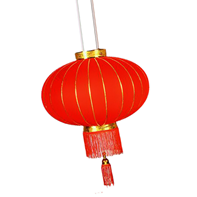
How do Chinese people celebrate the Lantern Festival?
Among Chinese Lantern Festival traditions, eating 元宵 yuánxiāo aka 汤圆 tángyuán may be the most famous. These tasty treats are round balls made of glutinous rice and stuffed with sesame paste or other sweet fillings.
Other popular Lantern Festival Traditions include hanging lanterns (which sometimes have riddles written on them), lion and dragon dances, parades, and fireworks displays.

What is the difference between 元宵 yuánxiāo and 汤圆 tángyuán?
The main difference between 元宵 yuánxiāo and 汤圆 tángyuán lies in the way they are prepared. On the one hand, 元宵 yuánxiāo is made by rolling the solidified filling in glutinous rice flour until it is fully coated. On the other hand, 汤圆 tángyuán is made by wrapping the solidified filling with glutinous rice wraps.
While these sweet and sticky snacks are more or less the same thing, the name 元宵 yuánxiāo is more common in northern China, while 汤圆 tángyuán is more common in the south of China and in southeast Asia.
Why do we eat 元宵 yuánxiāo or 汤圆 tángyuán on the Lantern Festival?
The character 圆 yuán in 汤圆 tángyuán means “round” and 元 yuán in 元宵 yuánxiāo is pronounced the same way.
汤圆 tángyuán also sounds similar to the phrase “团员 tuányuán”, meaning “to reunite as a family”. Their shape is symbolic of family unity for the coming year.
What is the significance of the Lantern Festival in China?
The holiday marks the first full moon of the lunar New Year.The Lantern Festival is called 元宵节 Yuánxiāo jié in Chinese because the holiday falls in the first lunar month (the month of 元 yuán). 宵 xiāo was the ancient Chinese word for 夜 yè, both meaning “night”.
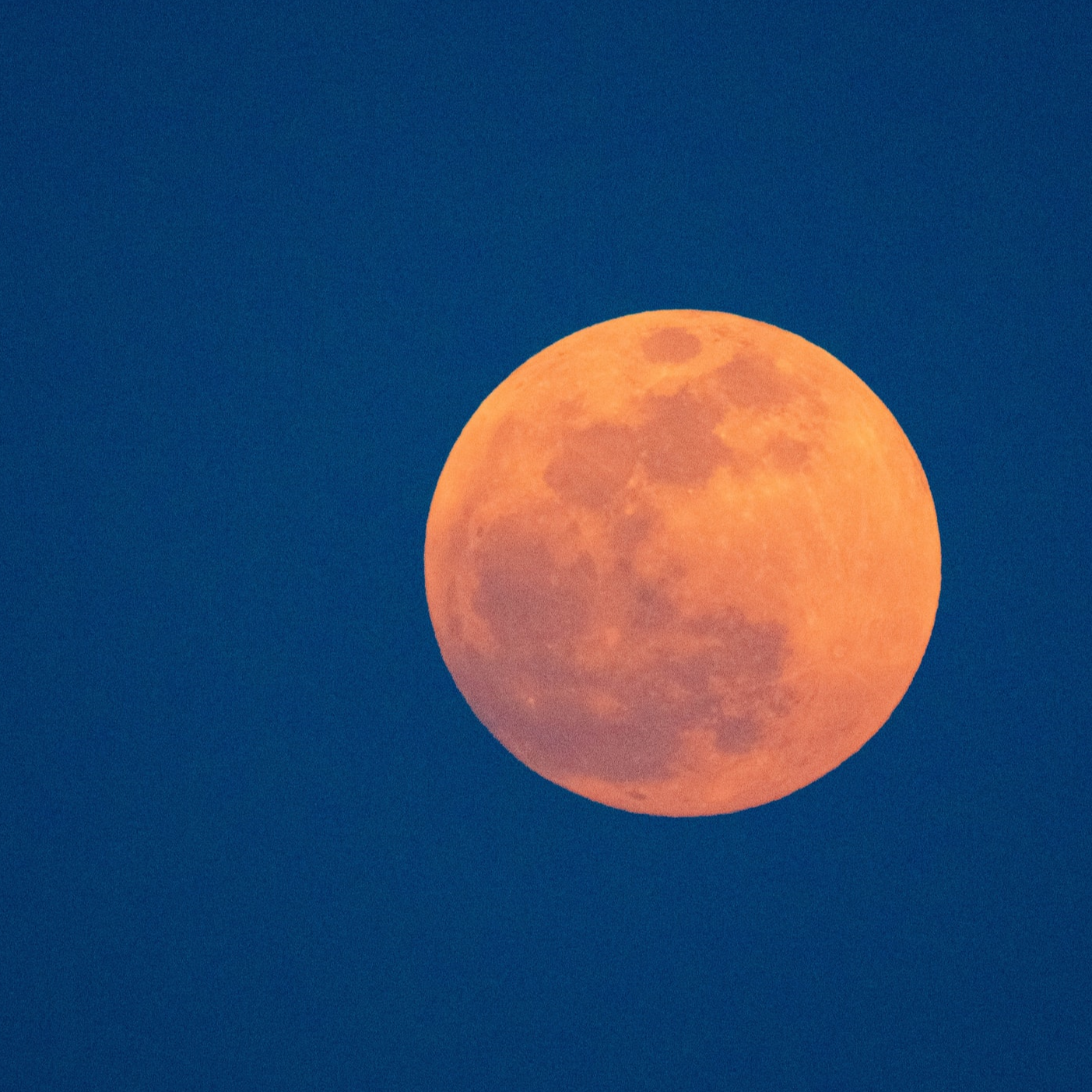
The Legend of the Lantern Festival
Many centuries ago, Emperor Ming of Han was a devout Buddhist who noticed Buddhist monks lighting lanterns on the 15th day of the lunar New Year.To commemorate the Buddhist tradition, Emperor Ming ordered all people, palaces, and temples to light lanterns as well, and the custom stuck.
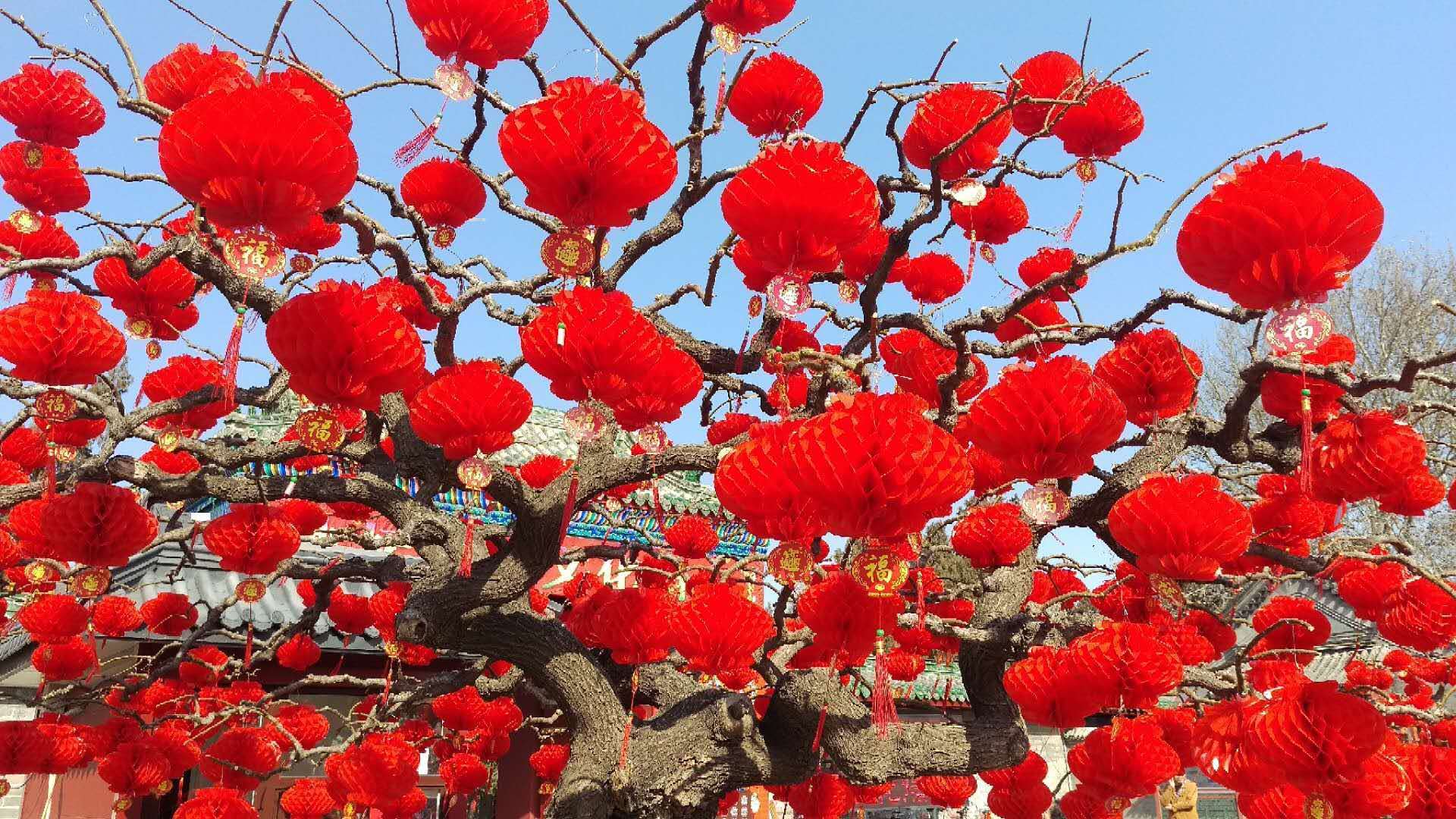
There is an abundance stories and folktales associated with the Lantern Festival, and the account of Emperor Ming is one of many. A second popular tale also exists, though the details vary widely.
As the story goes, a high-ranking official named Dongfang Shuo was wandering through the palace gardens when he heard a maiden crying.
He came upon a young woman named Yuan Xiao standing on the edge of the well, ready to jump to her death.
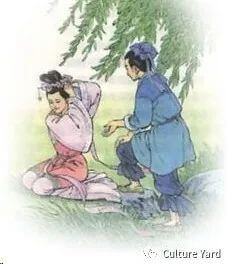
Since moving to the palace, Yuanxiao had not been able to see her family, and thought it better to die than to be such an unfilial daughter.
Shuo was moved by the maid’s loyalty to her family and swore to reunite Yuanxiao with her parents.
The next day, Dongfang Shuo set up a fortune-telling booth in town. He was very wise, and many people, including Emperor Wu, came to hear their fortune. The fortunes were all the same: the kingdom will burn on the full moon.
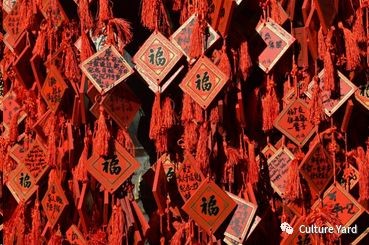
When the Emperor heard this, he was terrified and asked Dongfang Shuo how he could save his kingdom.
“A fairy dressed in red will reveal the way,” Shuo answered mysteriously. At that moment, Yuan Xiao came riding by on a horse. She was clothed in a red dress and carried a scroll.
“Your majesty, I hold a decree from the Jade Emperor. He will burn the kingdom on the first full moon. If you are to survive, you must do two things.
First, fool the Jade Emperor into believing your kingdom is already burning. Second, make an offering to the Fire God. Only then will you survive.”
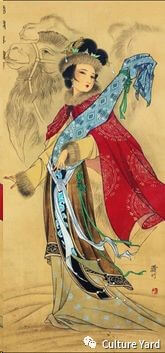
Emperor Wu understood that if the Jade Emperor saw the lanterns, he would believe the kingdom was already on fire. He immediately sent out the imperial order for lanterns to be hung across the kingdom.
Yuan Xiao made tángyuán as a tribute to the Fire God, and each family in the kingdom also gathered together to make their own offering of tángyuán. As the sun set on the 15th, across the kingdom the people lit lanterns and set off fire crackers.
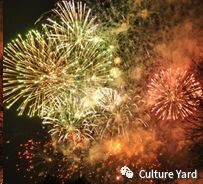
The sun rose the next day and the kingdom was safe. Emperor Wu summoned Dongfang Shuo and Yuanxiao to reward them for saving the kingdom. As their reward, Shuo and Yuan Xiao asked for her parents to be welcomed into the palace.
Their wish was granted, and in celebration of the kingdom not being burned down, Emperor Wu declared making tángyuán and lighting lanterns a yearly tradition. Since Yuan Xiao had saved the kingdom, the Emperor named the holiday 元宵节 Yuánxiāojié in her honor.
What a cool legend behind the Lantern Festival!
How do I say happy Lantern Festival in Chinese?
If you’re not sure what to say:
元宵节快乐!
Yuánxiāojié kuàilè!
Happy Lantern Festival!
If you want to make conversation:
您今年怎么过元宵节?
Nínjīnnián zěnmeguò yuánxiāo jié?
How are you spending the Lantern Festival this year?
If you are feeling confident in your culinary prowess:
请您来我家吃我自己做的元宵。
Qǐngnín lái wǒ jiā chī wǒ zìjǐ zuò de yuánxiāo.
Come over to my place and eat my handmade yuánxiāo.
Want to learn more about Chinese holidays? You may find these articles interesting:

What is National Day in China?
What is the Double-Ninth festival?
Chinese Valentine's Day: The Legend of Qixi Jie
About the Author
Eden has been learning Chinese since 2008. She fell in love with the language, food, and culture and never looked back! Eden lived in China for six years, including in Harbin, Beijing, and Dali.
